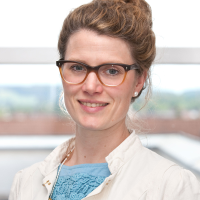Studying With Care Responsibilities
Taking on caregiving duties for a loved one can be very demanding, especially when combined with studying, a job, or both. Caregiving does not always mean personal care; it can also involve so-called informal care. This includes tasks such as cleaning, shopping, or managing communication with doctors or health insurance companies. Balancing studies, caregiving responsibilities, and potentially a part-time job is exhausting and requires a lot of coordination. The situation for students who are also caregivers is often made more difficult by the lack of compensatory regulations and customized support or relief services.
At the Family Service of Osnabrück University, we want to support you and offer individual counseling on how to balance caregiving and studying. On this page, we have gathered information and potential contact points for you.
To relieve the burden of caring responsibilities, it is possible to take a leave of absence from your studies for one to two consecutive semesters. Caring for a close relative is considered an important reason for applying for a semester of leave. It is advisable to submit the application for a leave of absence by the end of the re-registration period. Only in exceptional cases is the application still possible two months after the start of the semester. During the leave of absence, the student status remains the same, but coursework and examinations may not be taken and there is no entitlement to BAföG or student loans during this time. A reduced semester fee must also be paid when using the semester ticket or Studierendenwerk facilities such as the canteen.
Students who care for a close relative in need of care (at least ten hours per week) are exempt from long-term study fees for one semester. The need for care and the extent of the care provided must be verified by the long-term care insurance fund or the medical service of the health insurance company. The following groups of people are considered close relatives:
- Grandparents, parents, parents-in-law, step-parents,
- Spouses, life partners, partners in a marriage-like or life partnership-like relationship,
- Siblings, spouses/life partners of siblings and siblings of spouses/life partners,
- Children, adopted or foster children, children-in-law and grandchildren, and
- Children, adopted or foster children of the spouse or partner
Membership in the student statutory health and long-term care insurance can, under certain circumstances, be extended for students who have reached the age of 30. Recognized reasons include family reasons such as caring for relatives. The extension of the insurance obligation is possible for the period during which participation in studies was not possible or only possible to a limited extent (see GKV-Spitzenverband 2020, p. 12; Section 190 para. 9 sentence 2 SGB V).
Students who care for relatives can receive pension contributions. The contributions to pension insurance are covered by the long-term care insurance, provided that the relative in need of care has at least care level 2 and the care is provided for at least ten hours within seven days (at least two days per week). The long-term care insurance only pays the insurance contributions once these criteria are met, thereby establishing the status of a caregiver under the long-term care insurance system. The amount of the contribution is determined by the care level and the extent of the caregiving activities.
Special protective regulations apply to students who care for relatives. The University's General Examination Regulations stipulate that periods of absence due to caring for a close relative are taken into account by the Examination Board. Proof of the need for care must be provided by the long-term care insurance fund or the medical service of the health insurance company.
Social Counseling at the Studierendenwerk
The social counseling service of the Studierendenwerk Osnabrück offers help with all questions concerning studies, family and finances. It advises students individually, free of charge and confidentially.
Representation of Interests and Self-Help
Wir pflegen e.V. - Advocacy and self-help organization for family caregivers, consisting of a federal association and five state associations as well as individual state representatives. The state association wir pflegen Lower Saxony was founded in 2023.
Self-help group for caregiving relatives in Osnabrück - Association of caregiving relatives of people with physical impairments. The meetings usually take place on the third Monday of the month.
Alzheimer Gesellschaft Osnabrück e.V. Selbsthilfe Demenz - Self-help organization that offers information events, personal consultations, discussion groups and further training as well as emotional support and practical help to relieve the burden on family members and carers through dementia companions.
Support for Families With Children With Disabilities
Wunderbunt e.V. - An association that offers families with disabled children of all ages from the city and district of Osnabrück independent and free advice on various topics. There is also a networking service with regular network meetings, themed evenings and toddler groups for younger children and friend groups for older children.
Familienentlastender Dienst (FED) of Lebenshilfe Osnabrück - The FED provides families with volunteer helpers who accompany children, young people and adults with disabilities at home and in their free time.
Contact Persons
Lena Lorenz, M.A. (she/her)
Phone: +49 541 969-4686
familienservice@uos.de
Room: 52/509
Equal Opportunity Office
Neuer Graben 7/9
49074 Osnabrück
Short Bio: Lena Lorenz
Annkatrin Kalas, M.A. (she/her)

Phone: +49 541 969-4686
familienservice@uos.de
Room: 52/505
Equal Opportunity Office
Neuer Graben 7/9
49074 Osnabrück